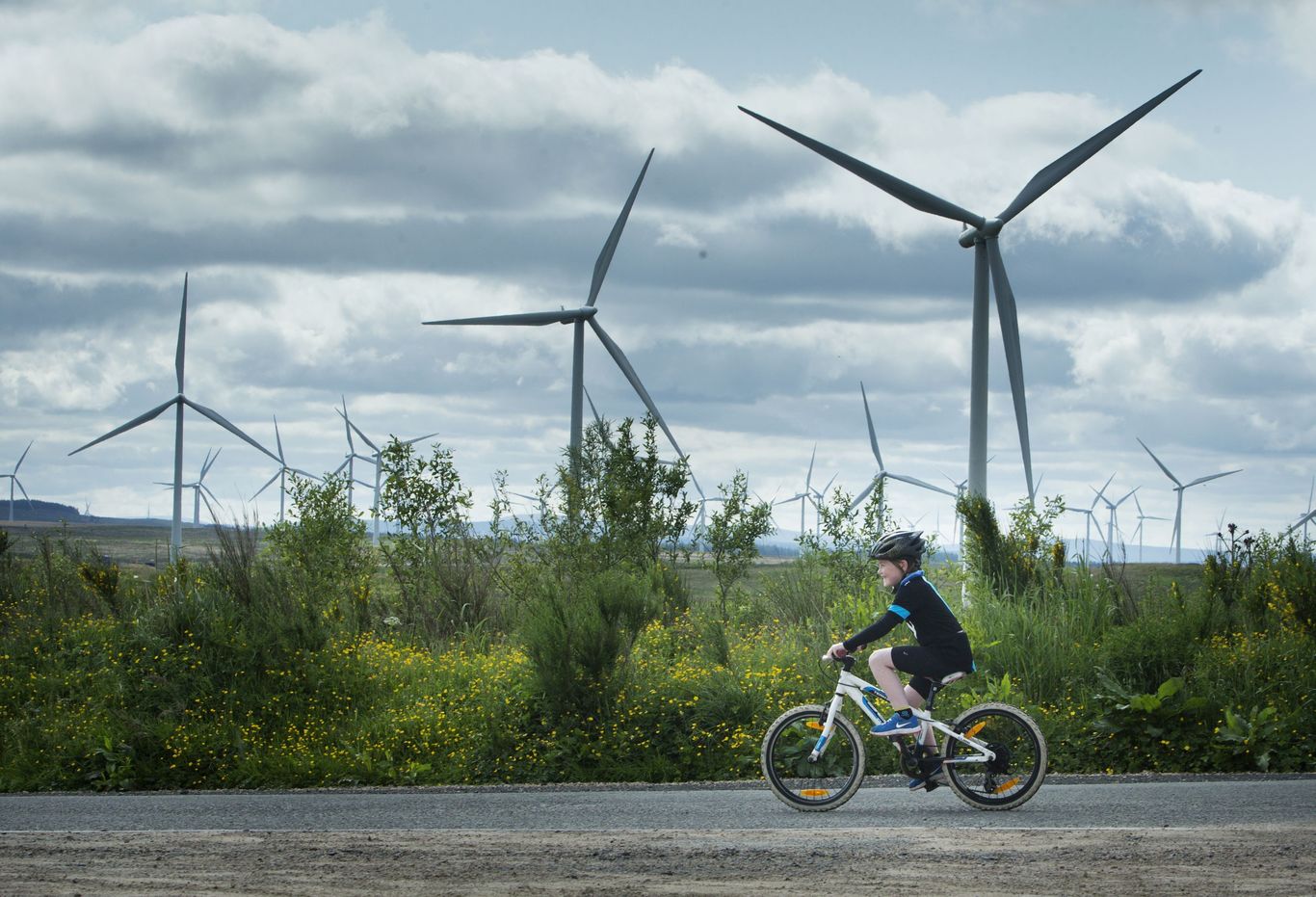'It may face hostility': There's a plan to let Irish people invest in their local wind farms
A new bill would give residents the chance to own 20% of developments in their area.
LOCAL RESIDENTS ACROSS Ireland could be allowed to co-own wind farms built in their area, if a new Dáil bill gets passed.
Sinn Féin’s Wind Turbine Regulation Bill 2016 is due to be debated by the Dáil later today.
Many elements are broadly similar to a wind farm bill that the party introduced in 2014 which was not opposed by the government. Sinn Féin is hopeful that the government will not oppose its new bill as well.
One of the most notable inclusions in the new bill is a provision that would mean that wind turbine developers would have to provide local residents the opportunity to purchase up to 20% of a stake in any developments in their area.
Initially, residents who live close to the proposed turbines would be given the chance to buy a stake in the project. If they decide not to, then those living farther away are allowed to buy.
Many of the details have not yet been finalised: for example, it’s not clear yet if residents would be able to buy shares at any sort of discounted rate.
Sinn Féin environment spokesman Brian Stanley said that the party would be open to amendments to the bill if it passes the second stage of the Dáil.
He said that the intent of the community ownership provision in the bill was so that locals could directly benefit from renewable energy projects in their area.
“If we’re generating energy in local communities, then the money should go back to local communities,” he told Fora. “It would help with rural decline, like shops closing.”
Stanley said that there would “of course be some hostility” from developers to the idea. However, he said that the move could also benefit them.
Planning battles
Many large proposed wind farms throughout the country have been delayed for years as locals opposed their development. Stanley said that if the community owned part of the wind farms, it would likely lead to less protracted planning battles.
“Wind farm developers have had huge problems with planning, and many have ended up in court,” he said.
“At the moment it’s a battleground between communities and developers in lots of cases. This would create a partnership with local people. When local communities have a stake in (projects) they would likely feel more amenable to them.”
Stanley said that while the bill only covers wind farms, he would like a similar proposal implemented for different types of renewable energy projects, such as solar and biomass.
The idea is similar to one that was proposed by the Irish Solar Energy Association, which said it would like to see members of the public help finance large-scale solar farms with investments of as little as €5.






